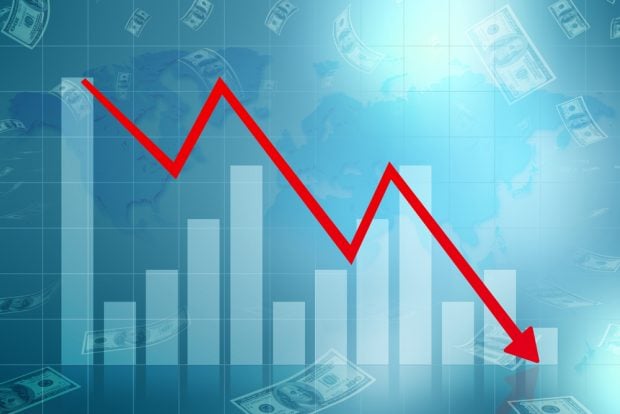WEST PALM BEACH, Fla. – Politicians who backed the idea of a federal income tax rebate argued people would spend the money and help boost the economy. Others have encouraged people to save the money or at least pay down their debts. Based on random calls by Credit Union Times to credit unions, the politicians predicted correctly what would happen. Roughly $39 billion in tax rebates to 91.6 million people is heading into mailboxes over an eight-week period. Some economists calculate if consumers spend that money, it could hike the gross domestic product 1% in the second half of this year. Bill Hampel, CUNA's chief economist, says member actions fit nicely into what many economists would expect. "Theory tells you if people receive a windfall gain that is likely to be one time only, they tend to spend less of it than if they think it's a repeated gain. If people are getting $600 a family and think this is the only time they are likely to see the $600, we would expect more of that to be saved than if they think they are getting $600 now and a similar amount now and into the future," Hampel says. "I don't understand exactly how the tax cut is going to work over the next five years, and I'm not sure how many consumers understand how it's going to work," he continued. "But it is generally understood this (current rebate) is an initial reduction in taxes in what is going to be a permanent reduction. So theory tells us we would expect more of this to be spent than saved. If people are indeed spending it, that goes along with the fact they're expecting it to be a lasting tax reduction." Here's what some credit unions are seeing. * Robert Eggleston Jr., CEO, United Business & Industry FCU, Plainville, Conn.: "We've heard people will be using the money for back-to-school expenses. Some are definitely taking a few short vacation trips. Others have said they're going to save the money for Christmas. Some are using it to pay bills. We have a very diverse membership, because we are a Chamber of Commerce charter. We have members from company presidents to part-time workers. During the past year we have basically watched them voluntary put money in shares. Our shares are up about $2 million this year, largely because of uncertainty about the stock market. The feeling seems to be, "Earning 2 percent is better than losing 10 percent." * Mac Dunnaway, President/Treasurer, Land of Lincoln Credit Union, Decatur, Ill.: "I've talked to our tellers, and they are seeing the majority of members simply cashing the checks. Younger members are looking to spend the money. Members 25 to 45 are also cashing the checks, but maybe in addition paying some bills. Older members are saving. So there's a generational and age line. The overall picture is, members are cashing the checks and spending the money. We haven't sent anything, at least not yet, to members encouraging to save their tax rebate checks. We have definitely seen members looking for safe havens from the uncertain stock market." * William DeMare, president/CEO, Bay Gulf Credit Union, Tampa, Fla.: "We haven't seen any noticeable increase in checking or savings accounts. We set up a promotion with a $300 minimum CD. The idea was you could put your rebate in the CD, let it sit for six months, then decide what you wanted to do. To date, we've had zero response. If the money is going anywhere, it seems to be going in and out of checking." * John A. Graham, president, Kentucky Employees Credit Union, Frankfort, Ky.: "The chairman of our board wrote an article that appeared in our last newsletter. He discussed some of the options people could consider for their tax rebates: use the money for school supplies, save it, or be very benevolent and donate the money to a charity. We've seen several members come in, cash their rebate checks and head right back out the door." * Ronald Bigelow, president/CEO, Citizens Credit Union, Kalamazoo, Mich.: "We haven't seen too many tax rebates checks yet. So far people seem to be either cashing them or putting them into a liquid account like a checking account. We have not taken any steps to encourage members to save those checks. If we had, I don't know whether it would make any difference. We already offer a CD with a minimum $500 balance." * Stephen White, president/CEO, Westerly Community Credit Union, Westerly, R.I.: "To be honest, we haven't noticed an appreciable increase in savings. I don't necessarily see it as money people are going to save. I get the feeling people are paying down debt, or have already made a purchase counting on the tax rebate. We have a regular local radio show, and our CDs start at $500, so we've brought that point up. "Your tax rebate check would fit nicely into our $500 minimum CD." Hampel is more optimistic about members saving at least part of the tax refunds many receive will after filing their federal income tax forms in April. "I haven't seen any research on this, but it's my anecdotal expectation that when people do get a lump sum like that, they certainly don't save all of it, but a bigger portion goes to savings or paying down debt that does normal, routine, periodic income," he says. – [email protected]
Complete your profile to continue reading and get FREE access to CUTimes.com, part of your ALM digital membership.
Your access to unlimited CUTimes.com content isn’t changing.
Once you are an ALM digital member, you’ll receive:
- Critical CUTimes.com information including comprehensive product and service provider listings via the Marketplace Directory, CU Careers, resources from industry leaders, webcasts, and breaking news, analysis and more with our informative Newsletters.
- Exclusive discounts on ALM and CU Times events.
- Access to other award-winning ALM websites including Law.com and GlobeSt.com.
Already have an account? Sign In
© 2024 ALM Global, LLC, All Rights Reserved. Request academic re-use from www.copyright.com. All other uses, submit a request to [email protected]. For more information visit Asset & Logo Licensing.









